Vice President calls for tougher laws, institutional reform, citizen engagement in fight against corruption
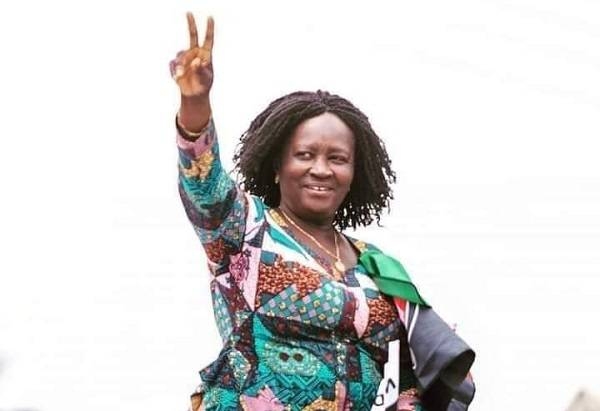 Prof Jane Naana Opoku-Agyemang
Prof Jane Naana Opoku-Agyemang
Vice President Prof. Naana Jane Opoku-Agyemang, has delivered a powerful call to action at the National Anti-Corruption Conference, unveiling a bold new campaign dubbed “Operation Recover All Loot” (ORAL) aimed at retrieving stolen public resources and reasserting Ghana’s commitment to integrity in public service.
Addressing stakeholders from across civil society, government, and the international community, the Vice President declared, “Operation Recover All Loot (ORAL) is an effort to send a clear message that corruption will not be tolerated going forward.”
In a series of strongly worded remarks, Prof Opoku-Agyemang laid out a vision for sweeping reforms to Ghana’s anti-corruption framework.
Central to her proposals was a push for the adoption of Unexplained Wealth Orders (UWOs) and a constitutional amendment to enshrine the principle of reverse burden of proof—a measure that would require public officials to justify the sources of their wealth.
“We must legislate and universalize unexplained wealth orders while anchoring the principle of reverse burden of proof in our Constitution,” she said.
She further called for an overhaul of the current asset declaration system, describing it as inadequate. “Our asset declaration regime requires immediate strengthening, moving beyond mere submission,” the Vice President emphasised.
Prof Opoku-Agyemang acknowledged the increasing complexity of corruption, noting that the country’s institutions and systems must evolve in response.
“Corruption continues to evolve in scale and complexity, demanding that we revitalize our institutions, systems, and collaborative frameworks with renewed urgency,” she said.
She applauded the growing role of civil society, investigative journalism, and citizen advocacy in the fight against corruption, stating that the government’s support for these efforts is a testament to its commitment to inclusive governance.
“Ghana’s commitment to this inclusive approach is evident in our support for investigative journalism, civil society advocacy, and the creation of platforms for citizen engagement in anti-corruption efforts,” she added.
Reaffirming the administration's political will, the Vice President noted:“His Excellency President John Dramani Mahama has demonstrated his commitment to revitalising Ghana’s anti-corruption architecture.”
She also stressed the need for legislative regulation of political financing, calling it a critical gap in the national anti-corruption framework.
“The financing of political parties and national elections must be regulated through comprehensive legislation,” she urged.
Professor Opoku-Agyemang was unequivocal in asserting that no anti-corruption initiative can succeed without the active involvement of the citizenry.
“No anti-corruption architecture can succeed without active citizen engagement,” she said.
“Ghana’s economic recovery and long-term prosperity depend on our ability to demonstrate that we are reliable stewards of public resources.”
She concluded with an optimistic but firm reminder of Ghana’s potential, saying, “Ghana has the opportunity to reclaim its position as a continental leader in accountability reforms.”
Source: Classfmonline.com/Cecil Mensah
Trending News
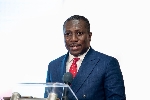
Afenyo-Markin slams alleged camera bias in Parliament, calls for professionalism
11:42
Sunyani GNAT Secretary calls on gov't to address outstanding teacher concerns
15:52
Kwahu South Education Director calls for incentives to address rural teacher shortage
08:26
Zoomlion's self-loading tricycles to transform waste management in Kumasi- Environment Sub-Committee
10:24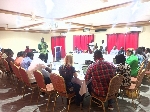
Media urged to champion public education on nutrition and healthy living
17:35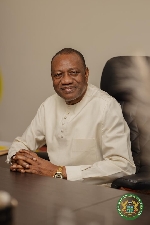
Rashid Pelpuo leads Ghana's delegation to co-chair ILO conference in Geneva
08:05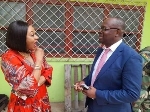
Omane Boamah calls for transparency in Ablekuma North results declaration
10:07
V/R: Residents of Hofedo protest fuel station, call for relocation
17:27
Mahama pledges to complete abandoned projects during Ahafo "Thank You" Tour
07:29
Zoomlion employees express gratitude to management for pilgrimage experience
11:56



